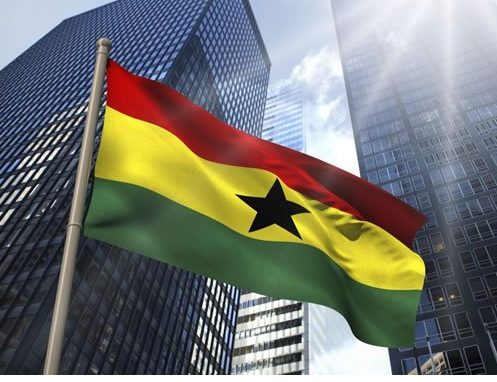
[ads1]According to Daron Acemoglu & James A. Robinson, 2013, “Poor countries are poor because those who have power make choices that create poverty”. They get it wrong not by mistake or out of ignorance but on purpose! This is why I title this article “the Usefulness of the Uselessness”. To address inequality in Ghana and anywhere in the world, one needs to address some basic political processes and how these dovetails into how decisions are made, who gets to make them and how people in power decide to do what they do.
In Ghana, we use the Universal Suffrage as a basis for promoting our political governance system and electing leaders. Political parties campaign and “sell” them manifestoes to the voting public. Based on several factors, some innate and others “hidden”, choices are made and the winner takes all. Once a political party is voted into power; they have the absolute power to make decisions without question within 4 years! How they make these decisions, who is involved in the decision-making process depends much on who supported them to come to power and the potential economic and political incentives the ruling class will get. This self-centred incentive(s) normally outweighs any other benefit the country may have as a collectivity. It is in this context that development is arrested. Our problem in Ghana, therefore, lies heavily on politics and “political” processes and not economics!
Political parties and their members spend a lot of money before they get elected. According to a CDD report titled “The Cost of Politics in Ghana”, it is estimated that during the 2016 elections for example, each member of parliament spent an average of GHC359,674 ($80,000) to come to power. Collectively, a total of $ 22 million was spent by the current Members of Parliament to come to power. This does not include expenditure on presidential elections and other unaccounted expenditure. Most of these monies they mobilized are invariably, involuntary commitments form “sponsors” and few might have been voluntary. When political parties win, they have to pay back these “commitments” and in some instances, “reward” those who supported them. These processes are what influence the decision-making of governments and ultimately promote inequality in Ghana, like in many African countries. It is therefore without doubt that political party processes culminate into social and economic institutions and these more often than not respond to the parochial political agenda of those in power. When people are pursuing their personal and ideological agendas to pay back “commitments” and make the best for themselves as opposed to situating their political agenda within the context of the national development, development is arrested! This is how the future of countries like Ghana are shaped and inequality exacerbates. Let me use some practical and real examples that give credence to this unfolding debate!
Agriculture
According to a recent study by the erstwhile SADA, the Northern Savannah Ecological Zone has more than 8million ha of arable land suitable for cultivation. On an annual basis, the Bagre Dam in Burkina Faso is opened and rainwater, which should be harnessed, is left to run into the ocean uncaptured! Though Ghana can boost of having the best lands in the sub-region, it still imports 66% of rice consumed locally at an annual cost of $500 million and about $200 million to import meat and meat products into the country. No government and no Ghanaian leader within the 4th Republic has seriously taken food self-sufficiency as a single development target to achieve. We eat what we don’t grow; thereby creating millions of jobs in other countries and killing several jobs in Ghana just by this action.
Some of these actions dovetail into increasing inflation and exacerbate the exchange rate mantra; promoting needless debates of blame-game and “see-saw” between the NDC and NPP. One does not need an Economics degree to understand that until we produce most of our food locally and eat what we grow by implementing “nationalist policies” to safeguard the country, we will continue to experience the depreciation of the cedi.
Take Burkina Faso for instance! They have subtly banned the importation of chicken into their country and have supported household micro-level chicken development- thereby fairly distributing opportunities for income as the first step to addressing the inequality question. This has created income at the household level and contributing to national development whilst saving foreign exchange for the country. Nigeria has done the same for rice and even though, they still import some because of their population, most of the rice eaten is still produced in Nigeria. You go to hotels in Abuja and Lagos and what they serve you as breakfast as an international guest is 80% Nigerian.
The more guest eats their local food, the more Nigeria’s create sustainable jobs for their youth. The government should rather focus on investing in Agriculture Infrastructure whilst curbing food imports if we want to put our youth to jobs. The Pwalugu Dam, the Nasia valleys, the Accra plains, the Aveyime and Katanga valleys should be the priority of every government if indeed they want to address joblessness, arrest inflation and promote value-chain development in the country.
Automobiles
Why is it that if a country is given a grant or a concessionary loan by the United States of America, the recipient has to fulfil key conditions including purchasing only American-made Vehicles. Again, one has to use an American carrier/flight if his or her job involves travel the use of USAID’s funds and if she/he can’t find one, he has to write a justification letter and get approval for a waiver before he can use a different airline. That is how countries develop their economies. You don’t use the taxpayers’ money and give it to another country! The saying that you put “food where your mouth is” says it all.
If our politicians can reason out of their political lenses and start pursuing nation-building agendas, we will not be in this development quagmire. For example, why can’t the ruling political class give contracts to Christo Asafo to manufacture and supply all MPs, District Assemblies and Educational Institutions with Pick-Up vehicles? Why should we spend the tax payer’s money to buy Japanese vehicles when we have an emerging automobile capacity in the country? How many jobs would we be creating in Ghana if this is the case? How many spare parts will we be producing? How many engines will be produced? How many industrial welders will be put to work? How many youths will have technological skill in a decade? The list is endless. Yes, many will say that Christo Asafo’s vehicles still have a long way to go; but until we support him and the Suame magazine “Professors” to develop, reflect, refine, and improve, we will not get to where we want to be and the industrialization of the country will remain a rhetoric.
Public Sector and related Policies
Several man hours, myriad consultation processes and several millions of taxpayers’ money (Ghana and abroad) was put into this. The Nana Addo government comes in and threw away this comprehensive plan and its CEO in the name of satisfying their grassroots supporters and not Ghana! The erstwhile SADA under the leadership of Dr. Charles Abugre also crafted a long-term plan for the economic transformation of Northern Ghana and an agriculture resource master plan for agricultural transformation in the savannah zone. This was the first of its kind because of its spatial context, elaborate well laid city plans of Tamale and Buipe as growth nexuses and incredible suggestions for the creation of economic growth poles in the north to thrive competitively. Many are talking about the Apollonian city in Accra; this approach is what the Tamale and Buipe city plans have elaborated.
The new administration comes in and throws this and its CEO away as a way of satisfying grassroots supporters and not Ghana. Roads, Hospitals, markets, etc. developed by one government is abandoned when another one comes to power and the cycle repeats its self. With this zig-zag trajectory of our political and development dispensation, whenever a new political party comes into government, it abandons what had started when its predecessor was in power and the cycle continues. Can we say this is causing financial loss to the state and hold the leadership to account?
We see individual members who are poor but when in governments (whether NPP or NDC) they enrich themselves when the local population is bleeding of hunger and squalor. We would not be mistaken if we put the blame of our arrested development in Ghana on the doorsteps of all politicians and their political parties. Their interest is not Ghana but themselves!!
Our public-sector institutions should be headed and manned by technocrats and not politicians. Broader long-term Plans and frameworks like the 40- Year National Development Plan and the Long-Term Economic Plan for Northern Ghana which were developed with broader national consultation processes must stand the test of time and politicians and every government must be bounded to stick to this by legislation.
This is one way to unlock arrested development in Ghana. As long as political capital is the reason for making national development decisions including deciding the leadership of our public institutions, we will continue to wallow in poverty and inequality. All should arise beyond partisan “politricks” which has arrested development over the years and denied us of meeting most of the MDGs. I am sure that with the current way our politicians and political parties operate, we are bound to miss most of the SDGs despite the fact the President, Nana Akufo-Addo is Co-Chair of the UN Secretary-General’s SDGs advocate.
The writer, Seidu Baba Alhassan, is a Ghanaian International Development Expert









